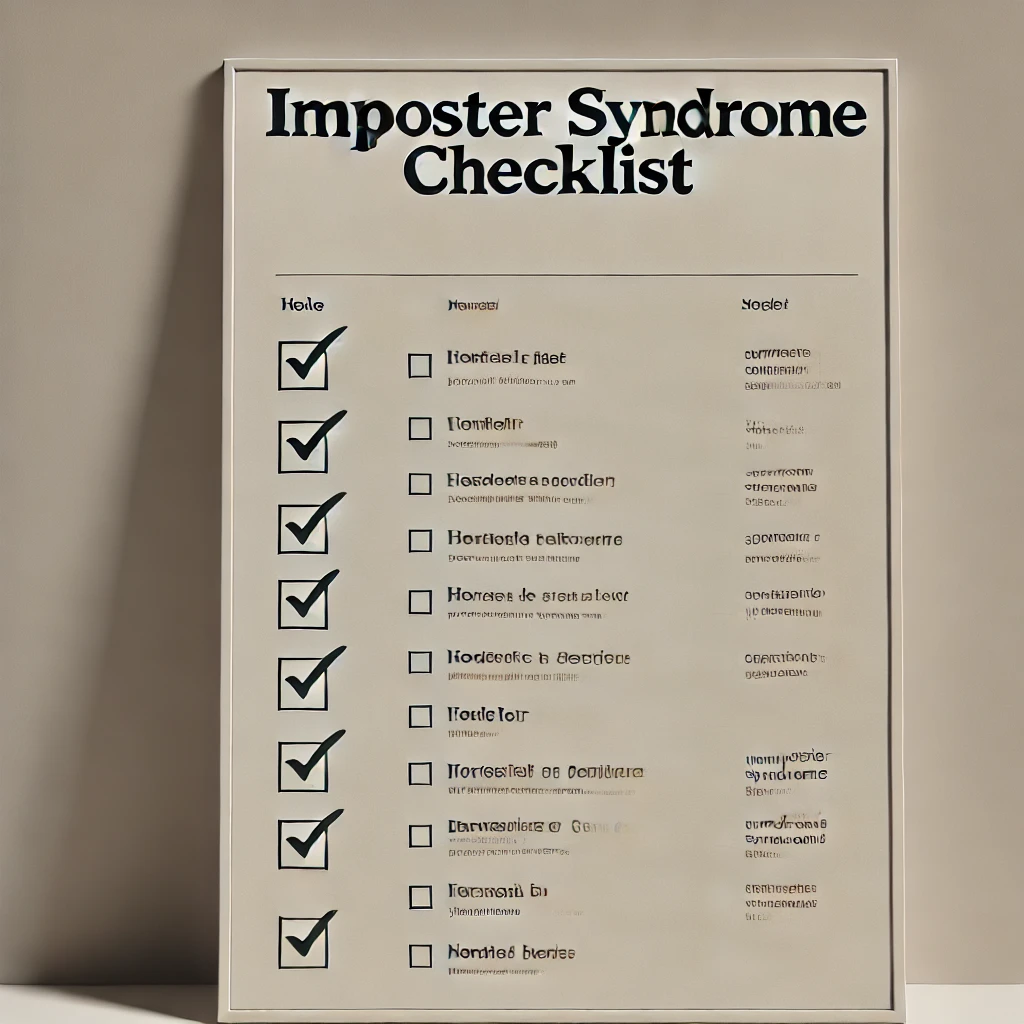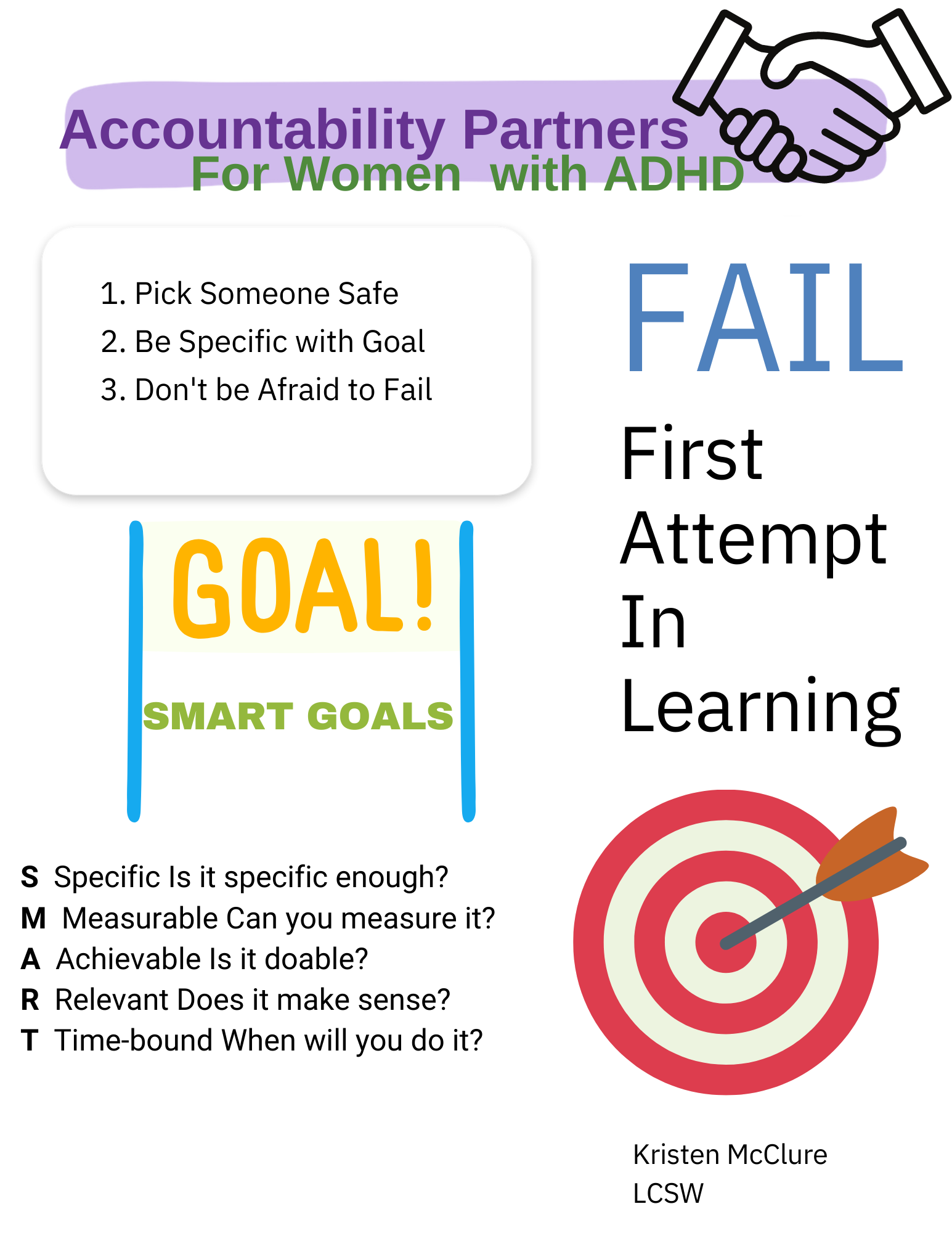ADHD and Imposter Syndrome in Women: Strategies to Cope and Thrive
TLDR
ADHD and Imposter Syndrome in Women 🌟
Women with adult ADHD frequently struggle with imposter syndrome, where they feel like fraud despite their accomplishments. This can lead to anxiety, depression, and burnout. The root of this issue often lies in societal expectations, cultural pressures, and the challenges unique to ADHD executive functioning that the neurotypical world doesn't recognize.Why It Happens:
- Constant Comparison: Women with and ADHD diagnosis often compare themselves to neurotypical peers, leading to feelings of inadequacy, low self-esteem and insecurity.
- Perfectionism: Overcompensating for ADHD challenges can result in setting unattainable goals, making failures feel more devastating.
- Societal Expectations: The pressure to conform to societal norms adds stress, amplifying feelings of fraudulence.
Coping Strategies:
- Acknowledge Your Achievements: Reflect on your successes and give yourself credit where it's due.
- Challenge Your Doubts: Question whether your self-doubt is grounded in reality.
- Build a Support System: Surround yourself with people who understand and uplift you.
- Practice Self-Compassion: Coping strategies include treating yourself with kindness, acknowledging that mistakes are part of growth.

ADHD and Imposter Syndrome in Women 🌟
Are you living with Attention Deficit Hyperactivity Disorder (ADHD) and often feeling like a fraud in your personal or professional life? If so, you’re not alone. Imposter syndrome—the persistent belief that you’re not as competent as others think—commonly affects women with ADHD. It also can lead to anxiety, depression, burnout, emotional distress, and strained relationships.
This combination can feel overwhelming, but understanding the connection can help you manage both more effectively.
It's important to know that imposter syndrome isn't caused by anything you did but by growing up in a society that others you and makes you feel like you need to mask!

📋 Do You Have It?
- Internalized Self-Doubt: Do you often feel like you’ve tricked others into believing you’re more capable than you are? Do you credit success to luck or timing rather than your own skills?
- Fear of Exposure: Are you constantly worried that others will discover you’re not as competent as you seem?
- Negative Attribution: Do you blame yourself for failures but dismiss your role in successes?
- Over-Preparation or Procrastination: Do you find yourself over-preparing or procrastinating due to fear of failure or low self-esteem?
- Difficulty Accepting Praise: Is it hard for you to genuinely accept compliments, feeling that others are just being nice?
- Perfectionism: Do you set excessively high goals and feel disappointed by minor flaws, believing that only perfect work will prevent others from seeing through you?
🌟 Who Is Most Likely to Experience Imposter Syndrome?
- 🟣 Women from marginalized backgrounds are more likely to experience imposter syndrome. Women who have any form of neurodiversity
- 🟠 People from backgrounds with a cultural emphasis on honor and external achievements can experience stress that leads to feelings of fraudulence, especially in immigrant communities.
- 🔵 Women who are high achievers often fear their true capabilities will be questioned, struggle to internalize success, and may chase unattainable goals.
- 🟡 First-generation professionals may feel inadequate navigating their careers because they don't have a familial blueprint for professional behavior.
- 🔴 Women who are a minority in a field can intensify feelings of being an outsider, a struggle that many neurodivergent people also face.
Challenges and Stuggles
Living with ADHD often means facing challenges with attention, memory, time management, and organization—sometimes coupled with anxiety or depression. These challenges can lead to constant self-comparison with others, and little focus on your strengths. This triggers feelings of inadequacy and self-doubt. When you achieve something, imposter syndrome may make you believe it’s due to luck or external factors rather than your abilities. This creates a vicious cycle: the more you achieve, the more you feel like a fraud.
🔍 Why ADHD Diagnosis Amplifies This
- 🔵 Constant Comparison: Comparing your productivity and success to those of neurotypical individuals can lead to insecurity a need for validation and fear of failure.
- 🟠 Perfectionism: Overcompensating for executive functioning struggles and other ADHD-related challenges with unrealistic standards often leads to disappointment when those standards aren’t met.
- 🟢 Negative Self-Talk: Frequent forgetfulness, procrastination, and distractibility can fuel a negative internal dialogue, reinforcing a sense of failure.
- 🟡 Inconsistent Performance: Fluctuating levels of performance make it hard to feel consistently competent, reinforcing imposter feelings.
- 🔴 Societal Expectations: Difficulty meeting societal standards for organization and focus adds pressure.
- 🟢 Internalized Stigma: The stigma surrounding ADHD can lead to low self-esteem and insecurity, making it hard to acknowledge your accomplishments.
✨ Validation Through Real Stories
Many successful individuals with ADHD have experienced imposter syndrome. Maya Angelou, for example, once said, “I have written eleven books, but each time I think, Uh-oh, they’re going to find out now. I’ve run a game on everybody, and they’ll find me out.” Even those who appear confident and successful can feel this way, but they find ways to cope.
⚡ Common Triggers
-
- High Achievements: Doing something well or getting recognized can cause pressure to maintain success, leading to self-doubt.
- Being a Minority: Feeling out of place can intensify doubts about your abilities.
- New Challenges: A promotion, significant change like motherhood, or starting new roles can trigger feelings of inadequacy.
- Cultural Expectations: Family and cultural beliefs about success and competency can contribute to imposter syndrome.
- Masking and Discrimination: The need to hide neurodiverse traits due to societal expectations can lead to internalized shame.
📊 Key Statistics
- Approximately 30% of individuals with ADHD experience symptoms of imposter syndrome.
- Around 25% of college students with ADHD struggle with imposter syndrome.
- Over 40% of adults diagnosed with ADHD report feeling like imposters in their professional lives.
- Individuals with both are more likely to have higher levels of anxiety, with a prevalence rate of 65%.
- Up to 20% of people with ADHD may develop imposter syndrome at some point.

🌈15 Coping Strategies and Tips
- Acknowledge Your Achievements: Reflect on your accomplishments and recognize your hard work. Keep a journal or create a "Brag Box" to celebrate even small wins. This will help you visualize your successes and combat feelings of fraudulence.
- Acknowledge Your Feelings: Share your imposter feelings with a trusted friend or mentor. This creates a supportive space for confronting and managing these emotions.
- Build Connections: Connect with others who share similar experiences. Building a support network reduces isolation, helps with validation, and reinforces that you’re not alone in experiencing imposter syndrome.
- Challenge Doubts: When imposter feelings arise, pause and reflect on whether concrete evidence supports them. Seek out evidence that contradicts your doubts to foster a more objective self-view.
- Practice Self-Compassion: Treat yourself with the kindness you’d offer a friend. It’s okay to make mistakes.
- Spot Self-Criticism: Notice when you’re too hard on yourself and replace negative thoughts with kinder ones.
- See Mistakes as Growth Opportunities: View mistakes as valuable chances to learn and grow.
- Believe in Your Worth: Build self-worth that’s independent of others’ opinions.
- Stay Present: Practice mindfulness to stay focused on the moment.
- Talk Kindly to Yourself: Use positive affirmations to boost your confidence.
- Set Achievable Goals: Establish realistic goals to reduce pressure and imposter feelings.
- Lean on Friends: Surround yourself with supportive people who uplift you.
- Reflect and Adjust: Regularly track your progress with self-compassion and make adjustments as needed.
- Educate Yourself and Others: Understanding ADHD and imposter syndrome can empower you to manage these experiences better.
- Surround Yourself with Supportive People: Spend time with those who understand and uplift you and focus on your strengths.
🌟 Coping With Feeling Like A Fraud: Conclusion
Feeling like an imposter is common for women with neurodiversity, including adhd; you are not alone. By acknowledging your achievements, seeking support, setting realistic goals, practicing self-compassion, challenging negative thoughts, and managing stress, you can break the cycle of imposter syndrome and build a more confident, authentic self.
Remember, you are not a fraud. Your experiences, struggles, and successes are all valid. Embrace your unique journey and recognize that your ADHD is a natural variation that contributes to who you are. You are enough. 🌼
Therapy can help with your confidence and understanding. Psychology Today is a good resource for this.
Interested in Learning more? Watch this great video on Imposter Syndrome



